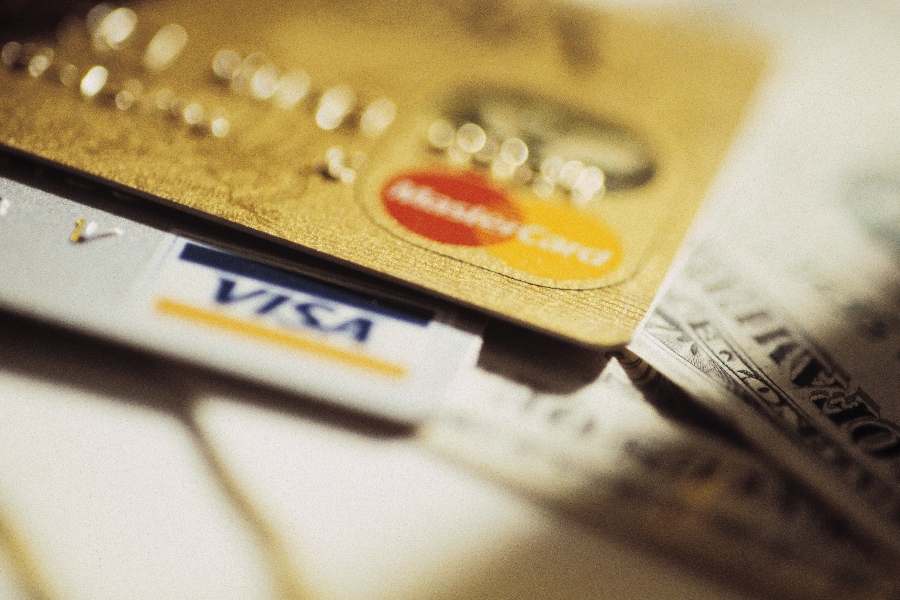
by dorraadmin | Oct 6, 2023 | Blog
No matter what type of industry you are in, running a small business takes a lot of work. Hours might be long, margins may get pretty tight, and unexpected challenges are sure to come up along the way. As the owner of the business, the burden will be on you to steer the ship through any turbulent periods.
One particular and almost inevitable challenge for a small business is raising enough money. If your business is thriving, great! But downturns can come on quickly, and you may be forced to raise cash to keep the lights on and pay staff. Plus, the costs just of opening can be exorbitant, so raising money at the outset is almost always necessary.
Fortunately, there are a few ways to raise money. Whether you’re looking at SBA loans, a crowdfunding campaign, or another method, it’s good to consider your options. Read on to learn a little more about how to effectively raise money at your business.
SBA Loans
All entrepreneurs should be familiar with SBA loans. These are a class of loans that are backed by the government, and are geared toward entrepreneurs of all types. There are loans for buying property, disaster loans, lines of credit, and more.
Don’t know where to start? Contact your local bank or credit union to ask about SBA loans, and you may be able to find an option that works for you.
Crowdfunding
Crowdfunding can be another effective option for many small businesses. Crowdfunding, as the name suggests, involves raising cash from the “crowd” — typically either a large group of small-dollar donors or wealthy investors (like venture capitalists). Crowdfunding can be a way to get more people invested in your business and works particularly well if you have a sizable social profile. Of course, in some cases, it does require giving up an equity stake in your business, which can be difficult.
Asset-Based Loans
An asset-based loan is usually a quick secured loan, lent based on something valuable you put up as collateral. Maybe it’s expensive equipment that your company owns or a vehicle or piece of property. Whatever it is, asset-based loans can be pretty quick to secure and are often flexible about terms. Just be sure you’re in a position to repay, so you don’t have to forfeit the collateral.
While the challenges of small business ownership are real, the rewards are substantial. These tips can help ensure you have the funds to make it through difficult times.

by dorraadmin | Sep 8, 2023 | Blog
Securing credit for a new business is challenging. You need an established credit history to qualify for some loans. It’s more complicated than showing your business plan to your local banker, and then if they like it enough, they will lend you money.
You need authorization from an underwriter for most loans, and they can mandate strict requirements before the lender will consider forking over cash to a new business. If you qualify, lines of credit can help a new business keep its money flowing while establishing itself.
How It Works
A line of credit functions similarly to a credit card cash advance. You’re approved for a certain amount of funds, which allows you to withdraw that cash for all your business needs. Unlike a credit card, it is not as simple as going to the ATM and getting a cash advance. You need to go to your lender to withdraw the funds.
You can use this type of credit for a variety of purchases. However, you have to use something other than lines of credit for larger purchases for the company because of higher interest rates.
How To Qualify
Unlike a credit card, you must meet stricter cash flow, collateral and credit standards with this loan type. The lender will base your creditworthiness on your or the business’s credit.
Most lenders will require a business operating period of at least two years to qualify for a line of credit. A newer company may need to find an alternative to this loan program for a little while until it’s more established.
If you choose to use your credit history along with personal collateral, you may qualify for lines of credit despite your business’s time in operation. Receiving credit approval may require that you sign your home or other collateral over to the bank, so their risks are limited.
How It’s Kept
Even after you get a line of credit, your lender will continually determine if you’re still eligible. The bank outlines stipulations they require to keep your line of credit in your contract.
These requirements can include a variety of things. The bank will look into timely payments, the business’s cash flow, and how you use the credit line.
Obtaining a credit line for your business can help boost your cash flow if you qualify. Knowing what it takes to prepare can help your company’s chances of acquiring this type of credit.

by dorraadmin | Aug 10, 2023 | Blog
Anyone running an independent business needs working capital. If your quest for a loan has been generating denials, you’re likely feeling frustrated. Inadequate funds could be blocking you from branching out and blossoming into the success you envision. Thankfully, there exists an option that may solve the problem. Consider taking out a merchant cash advance. Besides offering greater accessibility, these loans include an impressive list of advantages.
Funds Arrive Fast
One of the most notable benefits is that the money arrives quickly. In most cases, you won’t have to wait more than a week for funds to arrive. Compare that with traditional loans, which often take weeks or even months to complete.
Depending on the situation, timing could be of the essence. Creditors could be breathing down your neck. There might be plans for seasonal business promotion. Under these circumstances, waiting is unacceptable. After securing one of these loans, a lump sum deposit should arrive in your business account practically overnight.
Credit and Assets Are Not at Risk
It is common for young businesspersons to have negative marks lurking in their credit histories. Major lenders often view mistakes as reasons for not working with someone. Cash advance providers care little about their credit scores.
The reason is that the money their customers receive depends on credit card sales. A part of the money generated with every credit card swipe goes toward paying down the loan. Thus, the frequency of sales using plastic is what’s most important.
Because of this arrangement, whatever happens with the loan is unlikely to impact your credit score. Also, since collateral is unnecessary, it will not trigger repossession.
Money Can Be Used Freely
Many loans come with restrictions. Most lenders are interested in making sure their money goes toward particular areas. Deviating from these mandates can result in fines or even termination of the loan.
In contrast, the dollars from a merchant cash advance have no limitations. The money may be used in any number of ways. Pay down debt, hire extra employees, or replace broken equipment. The choice is yours. Having the power to spend the cash in whatever way you see fit is especially welcome when an emergency arises.
Depending on your situation, a merchant cash advance might be the financial solution you seek. Those inclined to favor other financial resources ought to consider the benefits of one. The perks might make forging a deal worthwhile, including for those who have an array of options.

by dorraadmin | Jul 6, 2023 | Blog
The latest and greatest equipment may not always be within reach for business owners, especially if the equipment is expensive. Instead of going without the machinery you need to grow your company, equipment leasing can help you get the items you need without spending too much money. With this, you can rent your machinery for a certain period, and it can be less costly than buying. Here is why leasing your equipment can benefit your business.
You Can Save Money
If you run a business in a niche that requires machinery, you have probably wondered how you can afford the item. It is especially true if you have a small business or just getting started. Instead of saving up for a long time or getting a loan, you can rent the item you need over some time.
If you want to buy it later, you can do so. However, at the beginning of your entrepreneurial journey, you might not have the money or want to spend it on new or used equipment. You can save money in the short term, but be aware it may add up over time. If you need the equipment constantly, consider buying it when possible.
You Can Use the Latest Equipment
If you need to use the latest equipment in your business for it to run smoothly or benefit your customers, equipment leasing can help you get the items you need. It can be valuable for doctors, medical professionals, or those that work with expensive machinery.
For those in the medical field, it may be crucial to have the latest machinery so you can help your patients live healthier lives. For manufacturers, they can produce items faster and more efficiently, which can make them more money.
You Can Use Items Short Term
Sometimes you do not need items for a long time and instead want to use something for a short period. Leasing your equipment can allow you to do this. It can save you money and help you decide if you need to buy the item outright. Renting your equipment can give you an idea of what it is like to work with it, and you can decide if it is essential for your daily business.
Leasing your machinery can help you run a more efficient business and help you gain new customers. Use these tips to help you decide if leasing is right for your business.

by dorraadmin | Jun 15, 2023 | Blog
Getting a fast influx of capital by utilizing your company’s accounts receivable could strengthen your financial outlook. Here are a few key things that you should consider about this funding.
How Does Invoice Factoring Work in Practice?
There are a few different formats of factoring models, but the nuts and bolts are fairly similar throughout the various iterations of this accounts receivable financing. You can sell your receivables to a factoring company in exchange for compensation representing a fixed percentage of their amount. Instead, you could obtain financing in exchange for an agreement to pay a fixed percentage or flat fee after you have received payment on outstanding receivables.
Factoring is most common among businesses that do not require customers to pay for products or services in advance. Many invoicing structures give customers anywhere from thirty to ninety days to tender payment. This is particularly common in business-to-business industries. Ultimately, an invoice that you have just issued but a customer has not paid you yet is exactly what factoring companies are looking for.
What Is Factoring Companies’ Upside?
To make the purchase of receivables worthwhile, businesses have to be willing to settle for compensation that is less than their face value. In general, factoring companies will pay in the range of seventy to ninety percent of an invoice’s value to buy it outright.
Age is a key factor in determining invoices’ worth, and an individual customer’s payment history may also be relevant. In addition, the amount that a factoring company is willing to pay for an interest in accounts receivable may partly depend on whether they are assuming responsibility for collections or responsibility for collections remains with the business from which they have purchased receivables.
How Does Factoring Benefit Small Businesses?
Accounts receivable financing through a factoring enterprise can keep your cash position healthy while you wait on payments from customers. Using the proceeds from a factoring transaction could give you instant cash on hand, allowing you to afford your ongoing operating expenses and investments in new assets to drive growth without overextending yourself.
One of the most appealing benefits of factoring for small businesses is that it can get them capital much more quickly than they would be able to by pursuing traditional small lending programs. Moreover, they can get working capital without having to borrow it from a lending institution they will have to make payments on a recurring basis. Resultantly, their debt-to-asset ratio remains intact, and a transaction will not inflict any damage on their credit score.

by dorraadmin | Apr 25, 2023 | Blog
As a small business owner, you will likely need to seek funding at some point. There are many options available from credit lines to invoice factoring and more. Each comes with advantages and disadvantages. You need to determine why and when you need the funding to determine which one is best for you.
In this blog, we’ll explore some of the most popular business loan options.
Top 10 Business Loan Funding Options
Term Loan
The first funding option we’ll explore is term loans. This option provides you with a lump sum of cash which will be re-paid with interest over a period of time. Alternative lenders can offer up to $1 million and provide funds faster than a traditional bank.
Advantages
- Cash upfront
- Allows you to borrow more than other loan options
- Funding is fast with alternative lenders
Disadvantages
- Often requires collateral or a personal guarantee
- Costs vary, alternative lenders charge higher fees than traditional lenders
SBA Loan
The SBA does not provide the loan but provides a guarantee to lenders on a portion of the funds in case the borrower defaults. Repayment periods are determined by how you plan to use the funds:
- Working capital: 7 years
- Equipment: 10 years
- Real Estate: 25 years
Advantages
- Offers lowest rates
- Can borrow up to $5 million
- Longer repayment terms
Disadvantages
- Long, rigorous application
- Difficult qualification standards
Business Line of Credit
A business line of credit provides your business with funds up to a certain amount. You draw what you need from the line and only pay interest on the money used. As you pay down the loan, the funds become available again. This funding option offers more flexibility than others.
Advantages
- Flexibility
- Unsecured, no collateral or personal guarantee required
Disadvantages
- Often has additional fees (maintenance and draw fees)
- Strong credit and revenue requirements
Equipment Loans
An equipment loan is a funding option that can help you cover the equipment needed to run your business. Typically, the equipment is the collateral for the loan, and the terms are matched with the life expectancy of the equipment. Rates depend on the strength of your business and the value of the equipment.
Advantages
- Strong credit and business finances get competitive rates
- You own the equipment and payments build equity
Disadvantages
- Typically requires a down payment
- Equipment may become obsolete before the term is over
Invoice Factoring
Invoice factoring may be a viable funding option if you have unpaid invoices and need fast cash. This process involves selling your invoices to a factoring company that will advance you 80% to 95% of your invoices’ value and collect payment from your customers. Once the invoice is paid, you will be given the remainder of the funds, minus the company’s fees.
Advantages
Disadvantages
- Can be expensive
- Lose control over collections efforts
Invoice Financing
This funding option is similar to invoice factoring. However, instead of selling your invoices, you use them as collateral to secure a cash advance. You retain control of the invoices.
Advantages
- Fast funding
- Customers will never know
Disadvantages
- Expensive compared to other options
- You are responsible for collecting from customers
Merchant Cash Advance
A merchant cash advance provides your business with funds upfront to fund your business. However, instead of making monthly payments, you commit a percentage of your daily credit card sales or agree to a fixed daily/weekly withdrawal from your bank account.
Advantages
Disadvantages
- High costs
- Cash flow issues due to frequent payments
Personal Loan
This funding option is ideal for startups since most banks won’t extend a business loan to a business with no history. Approval is based on your personal credit score/history and typically requires good credit.
Advantages
- Ideal for startups
- Fast funding
Disadvantages
- High costs
- Smaller funding amounts
- Failure to repay can damage personal credit
Business Credit Cards
A business credit card is similar to a line of credit. You can use the funds and repay as needed, as long as you don’t exceed the limit and make minimum monthly payments.
Advantages
- May earn rewards on purchases
- No collateral
Disadvantages
High-cost, rates may increase
Extra fees may apply
Microloan
The final small business funding option we’ll explore is microloans. A microloan is a small loan, typically $50,000 or less. This type of funding is available to startups, new businesses, and those that are located in disadvantaged communities.
Advantages
- Low costs
- Services such as training and consulting often included
Disadvantages
- Smaller amounts
- Stringent eligibility criteria
Does Your Small Business Need Funding?
If your small business needs funding, keep these options in mind. If you want to learn more, let Dorra Financial Group help!






